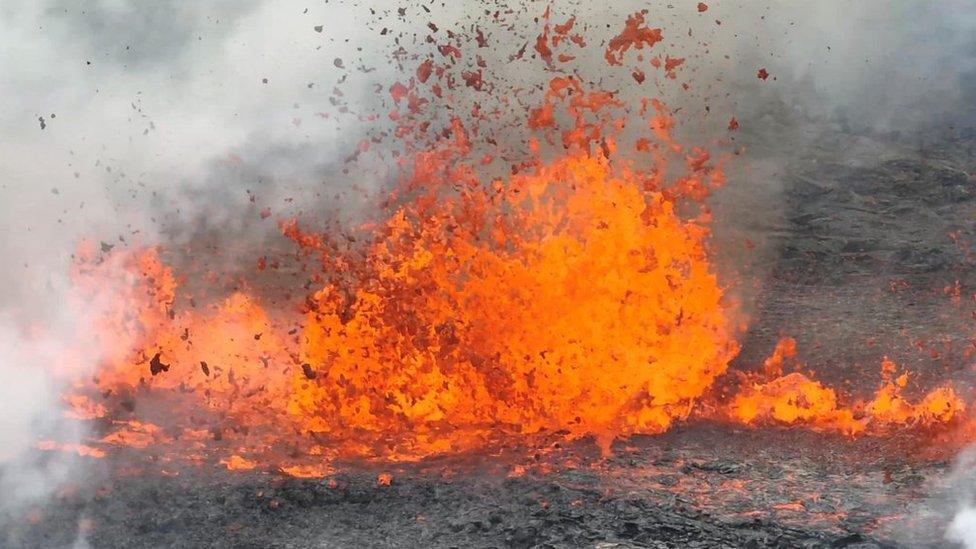Iceland volcano erupts on Reykjanes peninsula
- Published
- comments
Martin tells us more about the Iceland volcano that has erupted after months of activity
A huge volcano has erupted on the Reykjanes peninsula of south-west Iceland after weeks of intense earthquake activity.
About 4,000 people had already been evacuated from the nearby fishing town of Grindavik.
The eruption started late on Monday night - at 22:17 local time (22:17 GMT), the Icelandic Met Office said.
The region around Iceland's capital Reykjavik has been experiencing an increase in earthquake activity since late October.
How big is the eruption in Iceland?
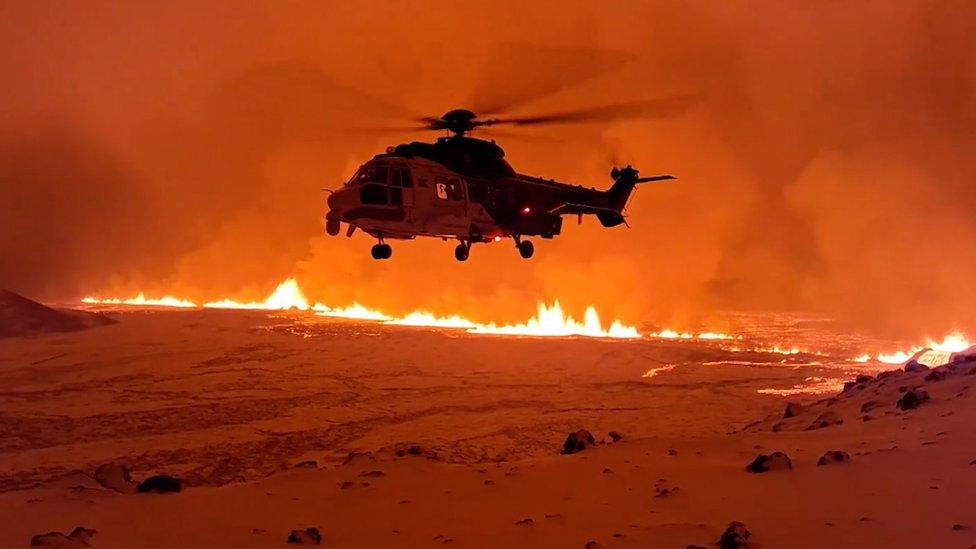
Helicopter flying over red lava
The eruption can be seen from the capital Reykjavik, which is about 42km (26 miles) north-east of Grindavik.
Clips on social media show lava bursting from the volcano just an hour after an earthquake swarm, or seismic events, were detected.
One eyewitness there told the BBC that half of the sky in the direction of the town was "lit up in red" from the eruption, and smoke could be seen billowing into the air.
Police have warned people to stay away from the area and no injuries have been reported.
Where is the volcano in Iceland?
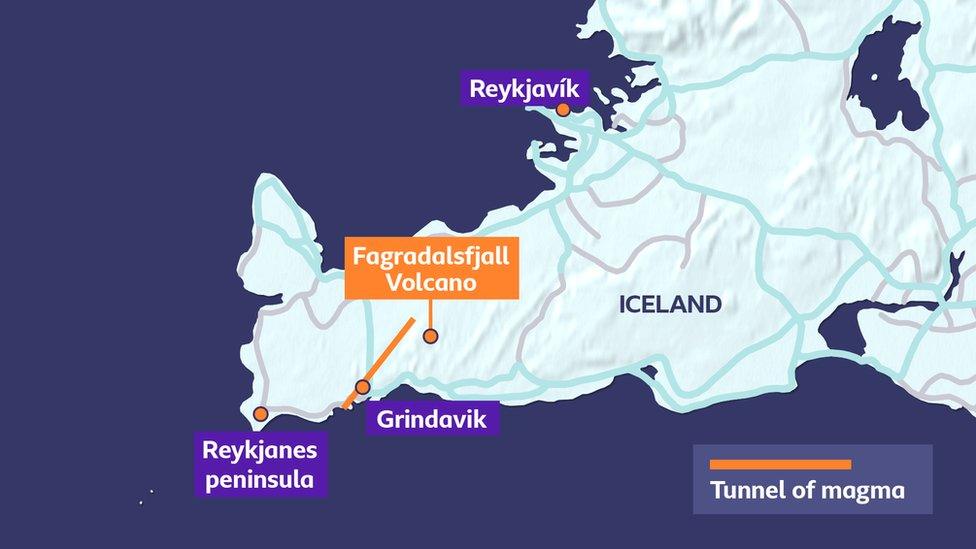
The volcano is situated on the Reykjanes peninsula, around 20 miles (32 kilometres) away from the capital city of Iceland - Reykjavík.
Reykjanes peninsula is located in the south-west of Iceland, nearly 900 miles (1,448 kilometres) from the United Kingdom's mainland and around 650 miles (1,046 kilometres) from the Outer Hebrides - the closest location to Iceland in the UK.
The length of the crack in the volcano is about 3.5km, with the lava flowing at a rate of around 100 to 200 cubic metres per second, according to the Met Office.
This is many times more than in previous eruptions on the Reykjanes peninsula in recent years.
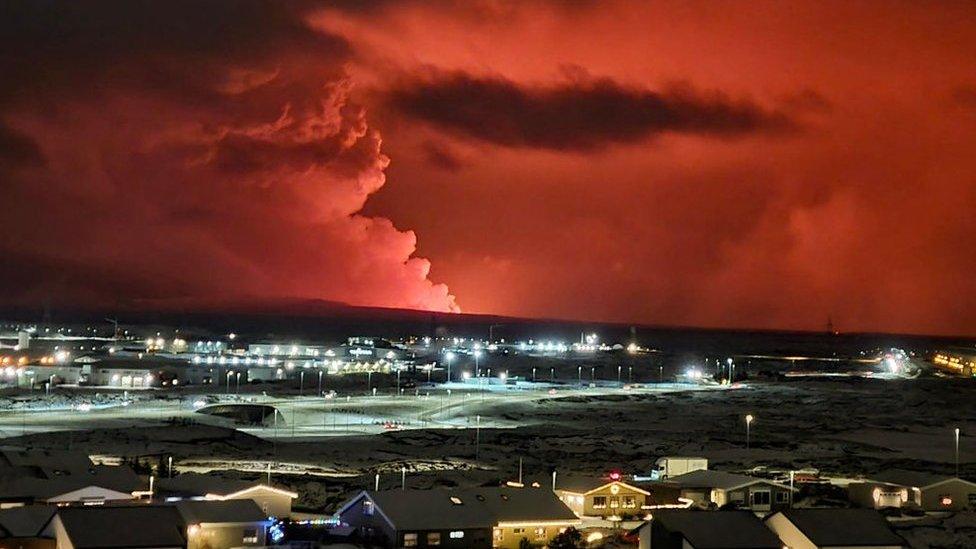
The sky turns red over houses in a village near the volcano
Iceland's Prime Minister Katrin Jakobsdottir said defences that have been recently constructed would have a positive effect.
Adding that her thoughts were with the local community and she was hoping for the best despite the "significant event".
President Gudni Johannesson said safeguarding lives was the main priority but that every effort would be made to protect structures too.
Will the volcano in Iceland affect flights?
Iceland's foreign minister Bjarni Benediktsson said on X, formerly Twitter, that "there are no disruptions to flights to and from Iceland, and international flight corridors remain open".
"The jets [of lava] are quite high, so it appears to be a powerful eruption at the beginning," he said.
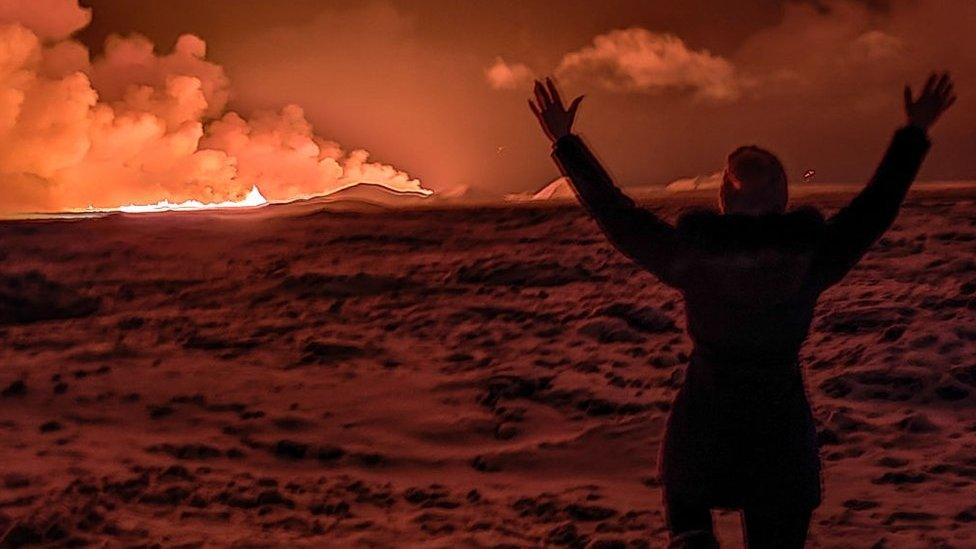
A local resident watches smoke billow from the volcanic eruption
How many volcanoes are there in Iceland?
According to the UK's Met Office, Iceland has 30 volcanic systems in total.
Iceland is very used to volcanic activity, as it is located on a mostly underwater mountain range that stretches along the Atlantic Ocean's floor.
This mountain range is called the Mid-Atlantic Ridge and was first discovered in the 1950s.
Why are there so many earthquakes in Iceland? (from March 2021)
It has formed between several of the Earth's plates.
While most of the Mid-Atlantic Ridge is underwater, it does form land as volcanic islands across the Atlantic Ocean, including Iceland.
According to United Nations Educational, Scientific and Cultural Organization, the Mid-Atlantic Ridge grows around 2.5 centimetres a year.
- Published14 November 2023
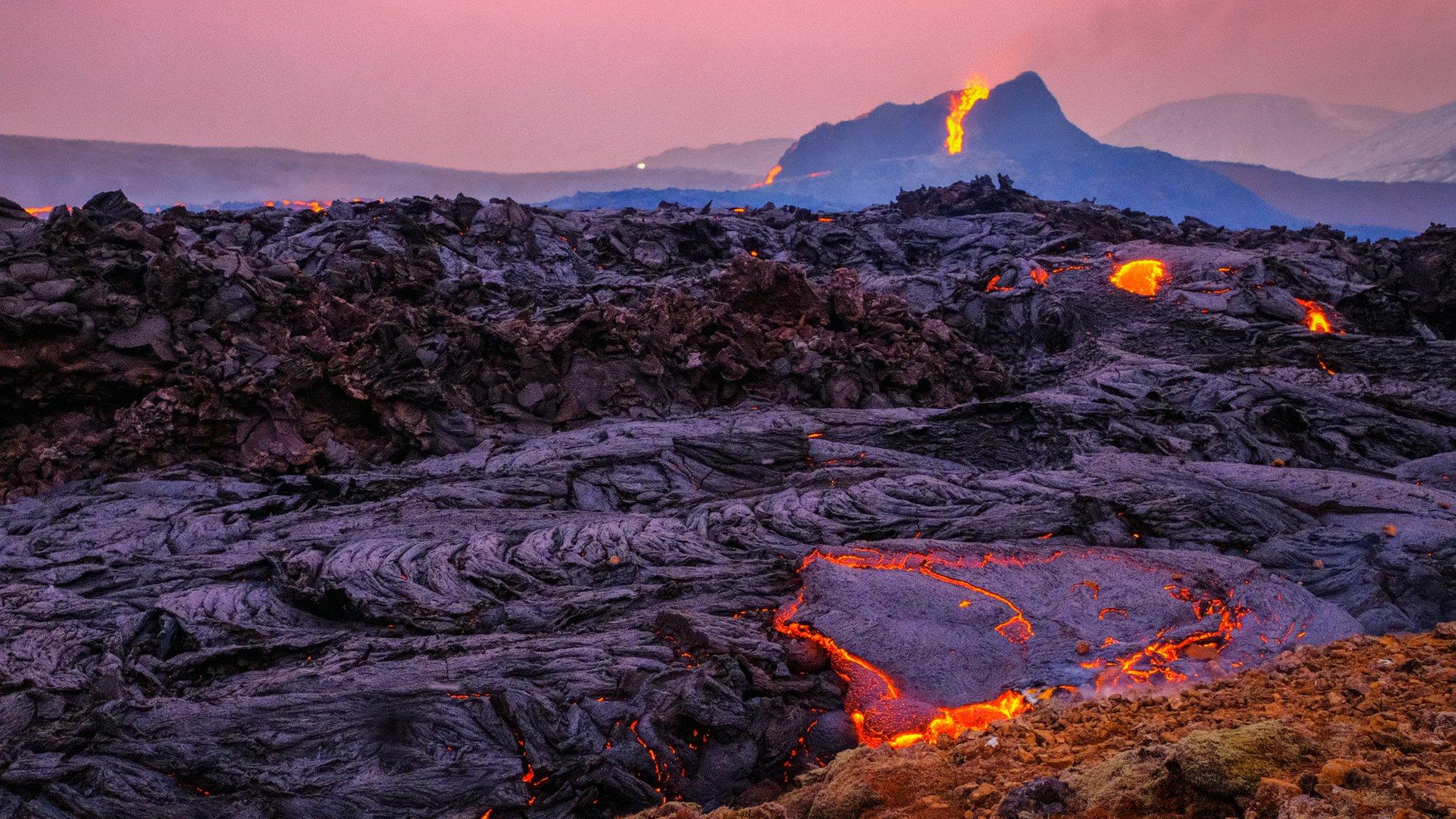
- Published11 July 2023
